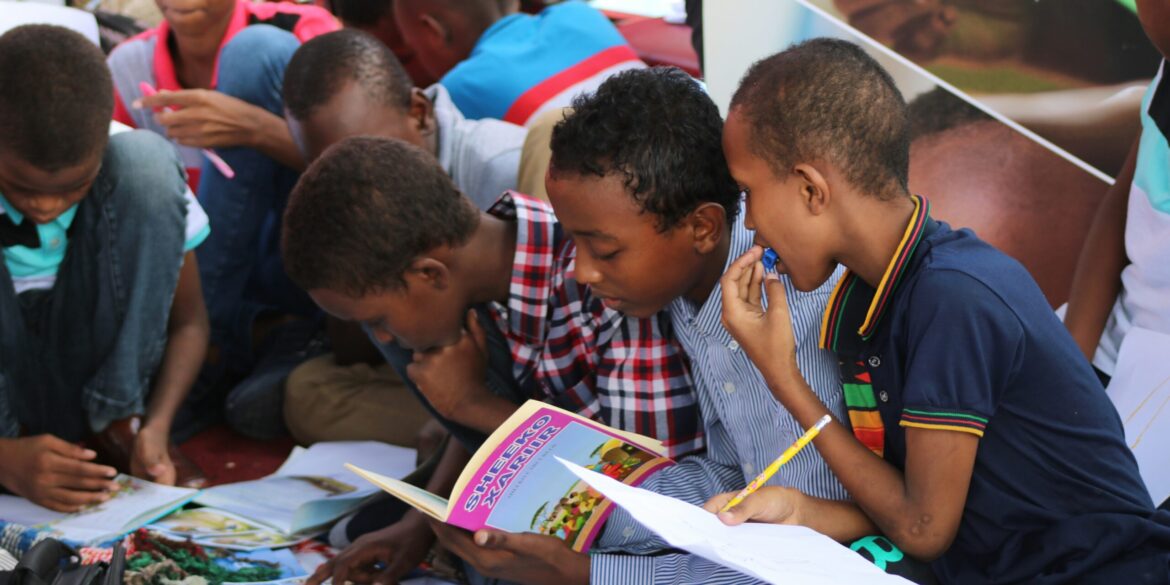September 8, 2025, stood out as a day that underscored the shared human pursuit of knowledge and the global effort to build a sustainable future. Around the world, communities marked International Literacy Day, an annual observance led by UNESCO, while in Las Vegas thousands of innovators and industry leaders gathered for RE+ 2025, one of the largest clean energy conferences in the United States. Though they took place in very different contexts, both events were united by a common theme: empowering people through education and technology while building a more resilient and inclusive future.
International Literacy Day, established by UNESCO in 1966, has long been dedicated to recognizing literacy as the foundation of education, participation, and opportunity. Nearly six decades later, the observance continues to highlight the transformative power of literacy in societies across the globe. Reading and writing are no longer viewed merely as tools for communication but as essential competencies for personal growth, active citizenship, and access to economic opportunity. This year’s commemoration placed a particular focus on bridging gaps in literacy, especially those exacerbated by widening inequalities, rapid technological change, and the lingering aftereffects of the COVID-19 pandemic.
The 2025 theme stressed the importance of inclusive education and digital literacy, recognizing that the world’s reliance on technology makes these skills indispensable. While progress has been made, UNESCO reports that more than 750 million people worldwide still lack basic literacy skills, with women and marginalized communities disproportionately represented in that figure. Without focused interventions, those individuals risk being excluded not only from job markets but also from civic life, healthcare access, and digital services that are increasingly woven into everyday existence.
Across different countries, governments, schools, and advocacy groups organized events to celebrate literacy and promote awareness. Book fairs, storytelling festivals, and public reading sessions were held in cities and towns. In many regions, classrooms integrated digital workshops to introduce students to online learning tools and responsible internet use, reflecting the growing emphasis on digital competency. Educators stressed that literacy in today’s world is multidimensional, requiring not only the ability to read printed words but also the capacity to analyze digital information and participate in an increasingly interconnected society. UNESCO leaders reiterated that closing literacy gaps is not simply an educational issue but a human rights imperative.
While literacy advocates were rallying around the cause of education, the clean energy community gathered in Las Vegas for RE+ 2025, a conference that has become a cornerstone of innovation and collaboration in renewable power. Hosted at both the Venetian Convention & Expo Center and Caesars Forum, the event opened on September 8 with workshops, a general session, and a welcome reception that set the tone for several days of intensive discussion and exchange. The conference drew professionals from across the renewable spectrum, including solar, wind, hydrogen, electric vehicle charging, microgrids, and large-scale energy storage.
RE+ 2025 offered a platform to showcase the newest technologies aimed at accelerating the transition toward clean energy. Industry leaders discussed strategies to improve energy storage systems, integrate renewables more effectively into power grids, and strengthen infrastructure against the growing threats of climate change. Exhibitors displayed cutting-edge solar panels, hydrogen fuel innovations, and smart grid applications, giving participants a firsthand look at where the industry is headed. Policy makers and analysts were also present, underscoring the importance of regulatory frameworks and public investment in scaling these technologies.
Networking was a central feature of the conference. Startups shared space with established corporations, while research institutions and government agencies sought out partnerships. Much like literacy initiatives, the success of the clean energy transition depends on collaboration, education, and a shared commitment to progress. Workforce development emerged as a major talking point, with experts pointing out that the renewable sector is among the fastest-growing employment fields worldwide. Training the next generation of engineers, technicians, and innovators is critical not only for meeting climate targets but also for expanding economic opportunity in regions transitioning away from fossil fuels.
The overlap of International Literacy Day and the opening of RE+ 2025 highlighted how education and technology are increasingly intertwined. Literacy empowers individuals to access knowledge, advocate for themselves, and participate fully in society. Clean energy innovation, meanwhile, is about creating a sustainable future where access to resources is more equitable and environmental impacts are reduced. Both represent essential investments in human development—one focused on intellectual empowerment, the other on planetary stewardship.
Observers noted that the alignment of these events was symbolic. Just as literacy opens doors to personal and societal progress, renewable energy innovation opens the door to environmental resilience and global stability. Each reflects the importance of inclusion, whether through providing access to education or ensuring equitable access to clean resources. In both cases, the central question is not simply about technological or policy advancements but about the ability to ensure that progress benefits all.
By the end of September 8, the messages of the day resonated clearly. International Literacy Day reminded the world of the pressing need to close educational divides and prepare young generations for an increasingly digital world. RE+ 2025 showcased the breakthroughs and partnerships necessary to move the global economy toward sustainability. Together, they demonstrated that education and innovation, when combined, hold the power to transform both individual lives and entire societies.


